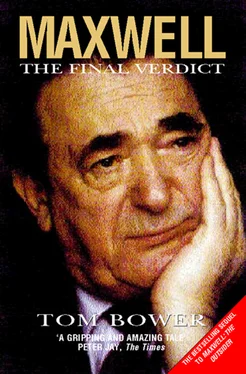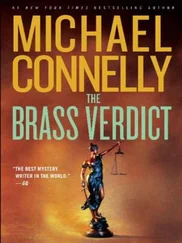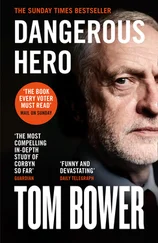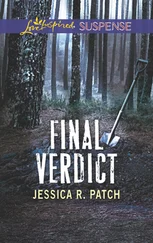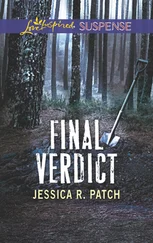At 1.20 on Sunday morning in Tel Aviv, eight men and one woman peered into the evidential debris bequeathed by Lamela, the stench from the formalin irritating their eyes and noses. As an assistant ladled the liquid out of the cadaver, Hiss complained, ‘There are some bits here you don’t recognize as a human being’s.’ The Spaniards had butchered the evidence. Dissected organs had been thrown into the corpse rather than sealed in a plastic bag. What remained of the lungs was full of water, but whether natural fluids, seawater or formalin was impossible to determine. The dissection of a remnant of the lung revealed some froth. ‘Consistent with both heart attack and drowning,’ the pathologists agreed. Examination of the liver revealed acute sclerosis, consistent with alcoholism. What remained of the other organs was practically worthless.
‘There’s no heart, nothing,’ complained West.
‘I think we should send the bill for this one to the Spanish,’ laughed West.
‘To the King, Juan Carlos,’ agreed the Israeli.
Suddenly, another assistant excitedly announced the discovery of a blood clot in the head. Further examination revealed no bruising. It was just accumulated blood fixed with formalin, West and Hiss agreed, a relic of Lamela’s butchery. A deep bruise near the right ear also contributed nothing to establishing the cause of death but was probably contemporaneous with the tearing of the muscles. The British pathologist’s earlier excited conclusion that ‘He’s been thumped’ had been jettisoned, along with his initial assumption of murder.
At 2.30 a.m., their work was completed. ‘I think it’s been a very bloody dissection,’ mourned West as he lit a cigarette. Stepping into the warm air outside, he walked towards his car. He would drive back to Jerusalem, where he had landed just twelve hours earlier on a Gulfstream jet formerly owned by the man whose corpse he had just abandoned. ‘I’ll look at Jerusalem before I go home,’ he decided as he sat back in the car for the fifty-minute journey to the Holy City.
The body would soon be transferred to the same destination for its funeral after a mortician had performed some rapid repairs. It would be buried with a mystery. Three pathologists – British, Spanish and Israeli – had ruled out murder but disagreed on the cause of death. Both Hiss and West discounted Lamela’s dismissal of drowning. The ambivalent evidence prevented any definite decision. But Hiss supported the Spaniard’s theory of a heart attack.
In the Israeli’s scenario, the deceased had suffered the preliminaries of the attack, left his cabin and walked to the rail overlooking the sea. Either stumbling or in the early stages of the attack, he had fallen forward, toppling over the ship’s rail or under a steel cord in the stern. At the last moment, he had grabbed at the rail, torn his muscles and, in pain, had plunged into the dark wilderness where the heart attack had come to a swift conclusion. ‘I think he drowned with an epidural haematoma,’ said Hiss.
Suicide was ruled out by the Israeli. In those circumstances, he argued, suicides never cause themselves violent harm before their death. Nor do those contemplating suicide jump naked to their death, and the deceased’s body had been found without the nightshirt which he had worn that night.
On reflection, West was dismissive of Lamela and Hiss. The Briton’s conclusions were determined by the torn muscles and coagulated blood. Lamela would say in retrospect that the muscles had torn during the convulsions of the heart attack. Both West and Hiss rejected that as ‘ridiculous’. Both agreed that the muscles had been ripped by a sudden jerk after the deceased’s left hand had grabbed something. The pain in those seconds would have been intense. West discounted a heart attack, although ‘he had a heart disease which was potentially lethal’. He had two reasons: first, because ‘I would expect him to have fallen on to the deck’; second, even if he had toppled over the railing, ‘He would have been acutely breathless, convulsing and unable to grab anything.’
West favoured the theory that the muscle tears were caused in the deceased’s passage towards suicide or by an intervening accident. He had left his cabin and walked to the railing of his yacht. After climbing over, he had held on pondering his fate. Either he had accidentally slipped or he had deliberately jumped. In either event, in a sudden reaction, he had grabbed for the rail to save himself. His twenty-two stone combined with the fall’s momentum had ripped his muscles and within seconds forced him to release his grip. He had fallen into the dark sea where he had drowned. But even that was supposition: ‘I think that probably death was due to drowning. I can’t prove it. Nor can I prove the opposite.’ In an English court, ‘The verdict would be an open verdict.’
Distillation of the pathologists’ opinions leads towards the most reliable conclusion. Feeling unwell, the deceased had been on deck for fresh air. Stumbling, probably from a minor heart attack, he had fallen forward, passing under the steel cord or over the rail and, as he had twisted to grab it, had hit the side of his head against the boat. In double agony, he had lost his grip and dropped into the sea. There he died, some time later, from exhaustion or a heart attack.
But two critical issues remained unresolved. First, the cabin door had apparently been locked from the outside. If true, it pointed either to suicide or to murder, because anyone feeling unwell would be unlikely to lock a door. Secondly, the corpse had been found in seas notorious for strong currents. Twelve hours had elapsed between the deceased’s disappearance and his discovery. In the frequent occurrences of drowning around the Canary Islands, bodies are rarely found if missing for more than nine hours. Dr Lamela, with years of experience of drownings in that area, was puzzled by the condition of this particular corpse, which had allegedly spent twelve hours in the sea. ‘The body’, he recorded, ‘appeared to have been dead longer than it was in the water.’
Lamela’s conjecture spawned tales of intrigue, unidentified frogmen, a mystery ship, satellite photographs, radio intercepts, intelligence-service rivalries, unauthorized weapons deals, stolen gold, secret bank accounts, money laundering, untraceable poisons and ultimately murder. Given the identity of the corpse, nothing was unimaginable. At four o’clock in the morning of 10 November 1991, it was en route to Jerusalem to be fêted by the world’s most enigmatic government as a national hero.
In his lifetime, the deceased had boasted of his final bequest. ‘Billions of pounds’, he had crowed, ‘will be left to charity. My children will inherit nothing.’ The reality, he knew, was very different. He had bequeathed a cataclysm, but the full nature of his criminality was still known only to his youngest son.
TWO The Secret – 5 November 1990 Contents Cover Title Page Tom Bower Copyright Dedication Epigraph Preface 1 The Autopsy – 9 November 1991 2 The Secret – 5 November 1990 3 Hunting for Cash – 19 November 1990 4 Misery – December 1990 5 Fantasies – January 1991 6 Vanity – March 1991 7 Flotation – April 1991 8 A Suicide Pill – May 1991 9 Two Honeymoons – June 1991 10 Buying Silence – July 1991 11 Showdown – August 1991 12 ‘Borrowing from Peter to Pay Paul’ – September 1991 13 Whirlwind – October 1991 14 Death – 2 November 1991 15 Deception – 6 November 1991 16 Meltdown – 21 November 1991 17 The Trial – 30 May 1995 Epilogue Keep Reading Конец ознакомительного фрагмента. Текст предоставлен ООО «ЛитРес». Прочитайте эту книгу целиком, купив полную легальную версию на ЛитРес. Безопасно оплатить книгу можно банковской картой Visa, MasterCard, Maestro, со счета мобильного телефона, с платежного терминала, в салоне МТС или Связной, через PayPal, WebMoney, Яндекс.Деньги, QIWI Кошелек, бонусными картами или другим удобным Вам способом. Notes Company Plan Dramatis Personae Glossary of Abbreviations Index Acknowledgements About the Author By the Same Author About the Publisher
Читать дальше
